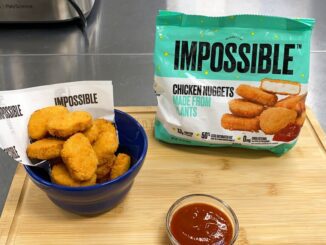
 Two summers ago, I wrote a column about how actress Selma Blair and her friend Rachel Fleit, who is a filmmaker, were accused of “cultural appropriation” by social media mobs because they posted a photo where they were both wearing pale-colored head wraps, which their online critics suggested was “appropriating” Sikh culture.
Two summers ago, I wrote a column about how actress Selma Blair and her friend Rachel Fleit, who is a filmmaker, were accused of “cultural appropriation” by social media mobs because they posted a photo where they were both wearing pale-colored head wraps, which their online critics suggested was “appropriating” Sikh culture.
Blair handled it well, telling one offended commentator that “Covering one’s head is not appropriating anything but warmth and a wig alternative.” To another, she wrote, “Scarves have been worn by all colors for ages. Relax.”
As it turned out, both Blair and Fleit had reasons for wanting to cover their heads. Fleit has a condition called alopecia, which causes hair loss. Blair was diagnosed with multiple sclerosis in 2018 and was also dealing with hair loss at the time.
Here we are in the summer of 2021, and unfortunately, accusations of “cultural appropriation” are alive and well, because apparently some people still would rather spend more time being outraged than going out and living life.
This time around, it was culture writer Roslyn Talusan, who has written for Vice and Refinery 29 among other online publications. She logged on to Twitter last week to talk about a cookbook on dumplings and noodles that was written by a white woman. This offended Talusan, who was blunt in her brief assessment.
She asked, “why did a white woman write a cookbook about dumplings and noodles,” leaving off the question mark. But that’s okay, because in her very next tweet, she quoted directly from the cookbook, and included 12 question marks at the end, which is writer code for “What the [bleep]?”
The big problem here is that the cookbook’s author, Pippa Middlehurst, wasn’t “culturally appropriating” anything. In fact, she went to great lengths in her cookbook to write about how far back her history of loving Asian cuisine goes.
She said her grandfather treated her and her brother to Asian food from when they were kids, and she loved it. She found her first recipe for stir-fry when she was 12. She also fell in love with an Asian supermarket that was located below the restaurant she and her family frequented. She noted in the book that she still visits that same market from time to time and could navigate the aisles with her eyes closed.
Middlehurst, who is a scientist, also wrote that as she became more familiar with all types of Asian cuisine, she went to a cookery school in Lanzhou, China, to learn how to make Asian food in a more “traditional way.”
Clearly, her cookbook was designed to showcase how her recipes were a tribute to her fondness for Asian dishes, and how she wanted to share them with people so maybe they would feel the same way once they tried them.
While Talusan locked down her Twitter account because she received so much pushback, sadly, it looks as though Middlehurst deleted hers (she’s faced this same criticism before). But before she did, she told the people following her that she wasn’t “going to justify my career here,” which was the appropriate response.
Another Twitter user made a great point about how “cooking is one of the greatest unifiers,” while others made sure to let Middlehurst know that they were Asian and that not only did they enjoy her cookbook, but that they looked forward to her learning more about and exploring Asian cuisine.
After the controversy she stirred up over this “issue,” Talusan actually solicited for donations to help pay for the costs of the “therapy” she said she was going to need over some of the responses she received. Meanwhile, Middlehurst’s cookbook is listed as a No. 1 bestseller on Amazon, which further proves the old saying about how revenge is a dish best served cold.
Media analyst Stacey Matthews has also written under the pseudonym Sister Toldjah and is a regular contributor to RedState and Legal Insurrection


